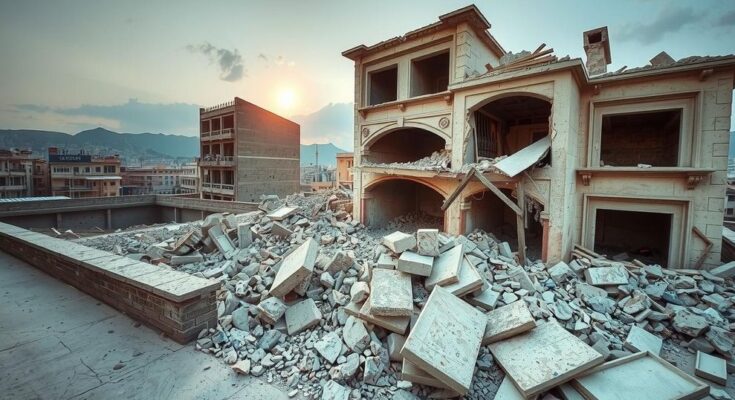The collapse of Assad’s regime has inspired proactive Sunni movements in Lebanon, leading to demands for the release of Sunni prisoners. Conversely, Hezbollah faces increasing challenges due to its weakened state amid military setbacks. Tensions between Lebanese factions and the broader Sunni awakening are reshaping the political landscape as events in Syria continue to influence Lebanon’s stability.
The recent earthquake’s aftermath in Syria has sparked significant shifts in Lebanese regional politics, especially among the Sunni community. Initially, the collapse of Assad’s regime was met with excitement in Sunni-majority regions like Tripoli and Sidon. However, this joy soon morphed into a push for the release of Sunni prisoners, led by Islamists calling for amnesty. Sheikh Ahmad Shemali has become a prominent voice for these demands, signaling a resurgence of Sunni activism following the jihadi takeover in Syria by Tahrir al-Sham. This awakening represents a challenge to Hezbollah’s weakened position, particularly in light of recent military setbacks against Israel.
The prospect of amnesty hinges on parliamentary decisions, where the current speaker, Nabih Berri, a Hezbollah ally, is unlikely to initiate such measures, maintaining the status quo of Sunni grievances. As tensions rise, the Lebanese political landscape remains fractured, with Hezbollah struggling to retain military and political influence amidst challenges from Lebanese Armed Forces commander General Joseph Aoun and various Christian factions who oppose Hezbollah’s historical influence in Lebanon.
There is a palpable fear that the Sunni political mobilization may threaten Lebanon’s stability, particularly through the potential influence of Syria’s Sunni regime. Major Sunni figures now see their neighbor not just as a war-torn state but as a rising ally, instigating potential irredentist sentiments within Lebanon. Notably, Ahmad al Sharaa (Abu Mohammed al-Jolani), leader of the anti-Assad forces, has pledged non-interference in Lebanon while supporting General Aoun’s presidential candidacy, suggesting that, at present, Syrian influences may remain limited. The Lebanese electorate and society are feeling the tremors from their neighbor’s upheavals, signaling a veritable reconfiguration of regional power dynamics.
The situation in Lebanon is deeply intertwined with developments in neighboring Syria, particularly following the upheaval against Bashar Assad’s regime. Historically, the Shiite community, led by Hezbollah, has held significant sway over Lebanese politics, but the post-Assad reality brings new challenges, notably from a re-energized Sunni faction. The political landscape is characterized by tensions among various groups, including Christians, Shiites, and Sunnis, each vying for power while navigating a complex web of allegiances and resistances shaped by the Syrian conflict and its aftermath.
The aftermath of the Syrian earthquake has catalyzed a volatile political situation in Lebanon, marked by resurgent Sunni activism seeking justice and recognition. Hezbollah’s weakened position amidst military failures and the Sunni community’s awakening suggests a shift towards more assertive political movements. As Lebanon’s political entities grapple with the consequences of developments in Syria, the cross-border dynamics will continue to inspire caution and potential instability. Therefore, the entire region remains in a state of flux as the Lebanese people face their neighbor’s burgeoning Sunni regime.
Original Source: www.jewishpress.com




